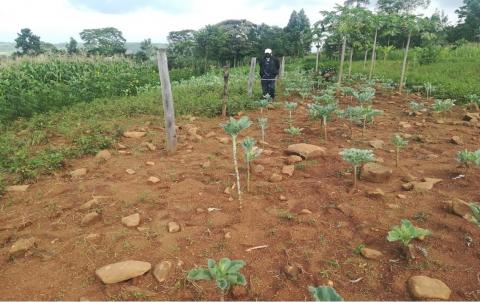Extent and Use of Non-Chemical Pest Management Alternatives Among Smallholder Vegetable Farmers in Kenya: the Case of Siaya and Migori Counties

This report is an assessment of the non-chemical pest management approaches used by smallholder vegetable farmers in the Lake Victoria region. The report documents the challenges faced by farmers practicing such approaches, as well as the general challenges facing adoption of agro-ecology in the region. The study was conducted as a case study in the counties of Siaya and Migori in the Lake Victoria region, south western Kenya. Information used in this report was gathered through literature review, interviews, field visits, and photography. The study team visited the Dala Rieko community-based organization and its members in Asembo, Rarieda Sub-County. And while in Migori County, Rural Farmers Research Network (RFRN), Wachna Farmers community-based organization (CBO), and various farmers were visited.
To improve adoption of non-chemical approaches to pest management in Kenya, the study recommends more information sharing on non-chemical pest management approaches and the development of strong policy and regulatory frameworks on agro-ecology. There is also a need to develop and implement extension programs for farmers on non-chemical pest management techniques. Lastly, it is important to develop and test non-chemical pest management approaches, as adoption of such approaches by farmers will depend highly on their effectiveness in managing pests and diseases.
This report relates to Sustainable Development Goals 2, 3, 6, 8, 12, 13, 14 and 15.
Special thanks to IPEN's Anglophone Africa Regional Coordinator Silvani Mng'anya and IPEN's Anglophone Africa Regional Hub AGENDA for their important contributions to the development and finalization of the project.
| Attachment | Size |
|---|---|
| 5.45 MB |
